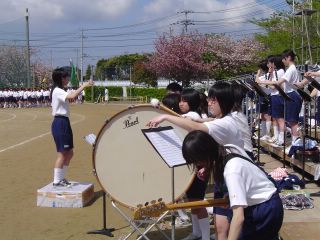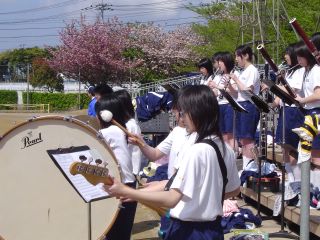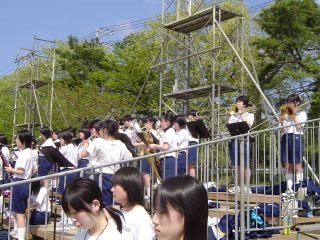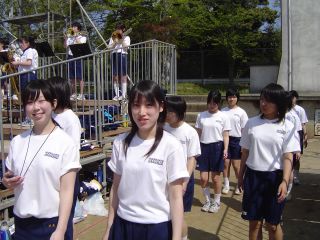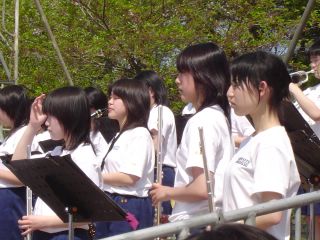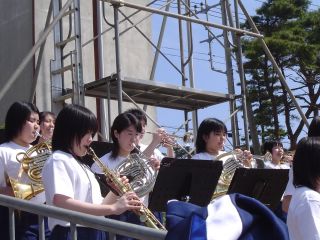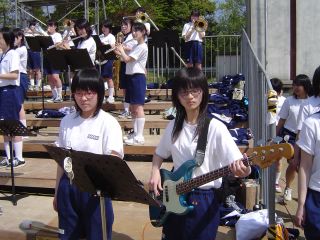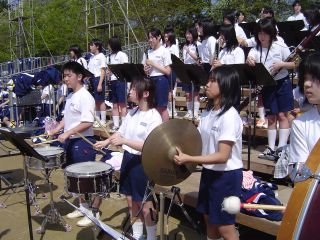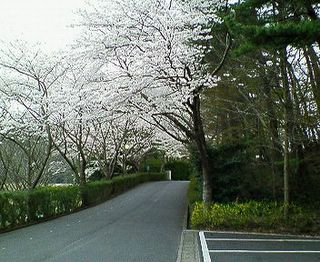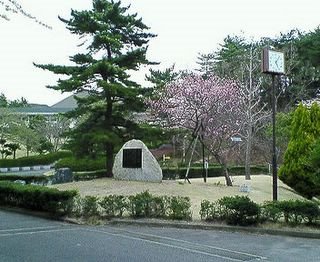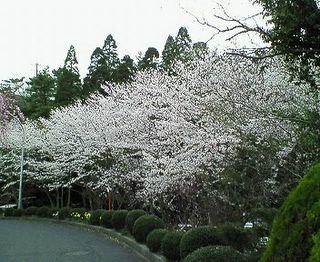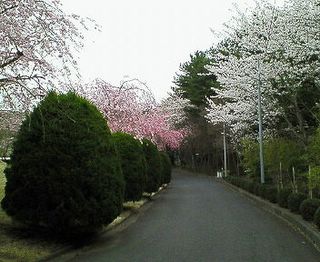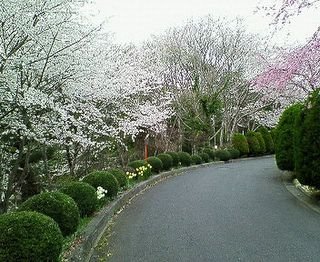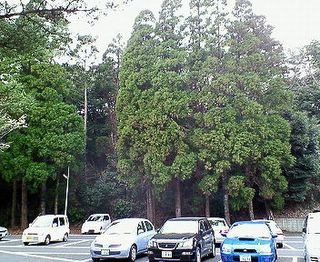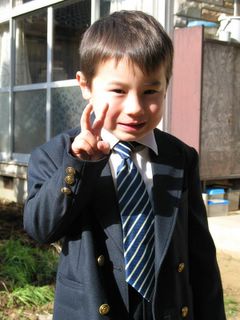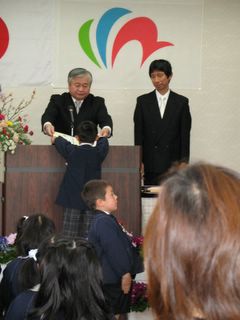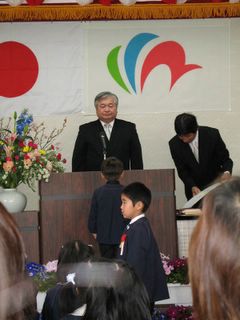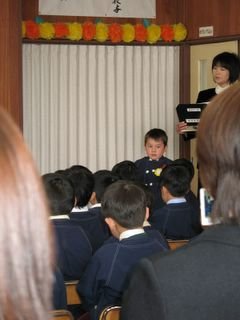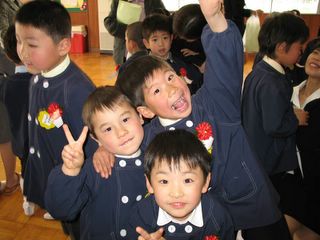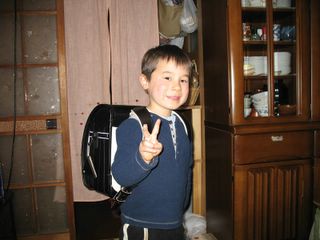It was dark and still when I walked to Mr. M's house, but that meant I could entertain myself with the beating of my own heart. His family homestead is less than 100 yards from mine, but it seemed like one of the longest walks in my life. You see, Mr. M's mother had died, and it was the night of the meeting to decide what everyone in the neighborhood was to do.
Until then, I had always managed to weasel my way out of those. My father-in-law was always content to do it himself, partly to help reinforce his position as a pillar of the community and partly to reassure his (bloated) ego knowing that he was much better informed about the subject than me. The fact of my being an ignorant foreigner also led mother-in-law to come to my defense on those occasions when father-in-law tried to pop off. Unfortunately, with mom-in-law still in the hospital, dad-in-law going to visit her every day, and a traditional rule that only men of the family are supposed to participate (i.e. no help from the wife), that left me with no other options. I had to do it.
You have to understand; funerals in Japan are large, elaborate affairs that span several days, and the whole neighborhood is involved. Every household is supposed to contribute one or more members (not to mention cash) to help out.
Emphasize the
supposed to. You see, I've found that support and participation are endangered species in this neighborhood.
I had attended the memorial service of a few funerals, but I had little exposure to the event as a whole save the one occasion that I participated at the reception desk at one. That didn't even qualify as the icing on the cake. I basically entered Mr. M's house knowing not and knowing that I knew not, i.e. I was a child in need of being taught.
The familiar faces of the menfolk of the neighborhood were there and showing obvious surprise at my presence. After we had each offered a prayer, incense, and a money offering at the (fortunately closed) casket, we sat in a circle, were served tea, and began the meeting in earnest.
The very first role to be filled was clearly the most important one, that of
rokushaku (陸尺 or 六尺), for which there is no direct English translation. The first set of Chinese characters literally mean "land measure". The second, which are less common in funerals but far more common in general use, translate as "quarterstaff", or at least a pole of about 180cm length. In archaic Japanese, both sets of characters mean the same thing with regard to the role. Basically, the
rokushaku serve as gravediggers, pallbearers, acolytes, and a whole lot of other things. They more or less carry the rite through in the service of the priest. They also prepare the materials used. It's an intimidating task, and few really know the ropes. (In fact, few Japanese I know, even at my school, even know what the word means.) Because of that, the job tends to fall to the same group every time.
Every time but this time, anyway. Two of the regular members immediately bowed out for uncertain reasons. That left both the neighborhood committee and Mr. M's family with a serious dilemma. You see, while dad-in-law is a chronic workaholic, the other men of the neighborhood are far less motivated. Actually, I've found them to be quite apathetic and uncooperative. Needless to say, when the chairman tried to find someone else to fill the spots, no one was forthcoming. The chairman asked everyone with increasing desperation, but the responses ranged from, "Well, you see, I, uh...well, uh...," to a brusque, "No way." A couple of men responded with icy silence.
As for me, participation was out of the question. The day of the funeral was the day that kicked off the new school year at the Academy. Classes weren't to begin for a few more days yet, but it was to be the day of the infamous First Meetings ("ta-da" in a diminished 7th key), when the staff and policy changes were announced and new roles decided. There is always a lot of work to do on such days, and missing them is never a good idea.
I put up my hand. "I'll do it," I said.
Every mouth dropped open. Hard.
When the chairman had scooped his jaw off the floor and put it back into place, he stammered, "Er, uh...are you sure your father-in-law can't...er, uh..."
"He's not coming," I retorted. "I'll do it."
The chairman, no doubt afraid I'd change my mind, wrote my name down with record speed, and the meeting went on. Not surprisingly, volunteers for other, less bothersome roles were immediately forthcoming.
When it was all done, the other members of the
rokushaku crew told me to be there promptly at 8 a.m. and suggested I stick close to them and follow their lead. As I walked home, I was barraged with comments of, "How noble you are," spoken with a tone of voice that suggested, "You're a bloody idiot!"
Cut to today, the day of the big event. I asked dad-in-law what I should wear, and he said as much black as possible. Therefore, I put on black trousers, black socks, a black, long-sleeve polo shirt, and a black coat. However, as soon as the Mrs. sees me she blows her stack. You see, the black coat was a birthday present from her, and my job promises to be a dirty, sweaty one. Frothing at the mouth, she demands I take the coat off and put on my black Oregon State hooded sweatshirt instead. I figure it's not worth fighting about, so I comply. Just in case, I toss my black suit and funeral necktie in the back of my BLUE RAV4 and head out.
It's cold and pouring down rain today, and I arrive at Mr. M's house to discover I have a flat tire. The first thing the
rokushaku crew does is help me change it. Embarrassed before even having begun, I take my car back home and return on foot. Then the real work begins. Fortunately, Mr. M's family has provided us with rain parkas purchased at 7-11.
I can't help noticing that my fellows on the team are all wearing their regular (blue collar) work clothes. Not only am I the only foreigner, but I'm the only one all in black save the oh-so-noticeable, orange lettering on my sweatshirt. I feel like a total idiot. It's even worse when we set to work making the various traditional ornaments for the ceremony, because I've never even seen them before. I do manage to make myself useful, however. I also manage to slice my thumb wide open while whittling down a strip of bamboo with my old Boy Scout knife. (I cut it on the bamboo, not the knife. That stuff is
nasty!)
Once the initial preparations are all finished, we take them over to the local temple and set them up as best we can. The rain is proving to be a serious nuisance. Not only is it cold and, well, wet, but the grass fibers used to bind everything together are soggy and snap at the least provocation. The paper hangings with their sutras in beautifully-written Chinese characters are disintegrating as we work. Things are taking forever, and we don't have forever. It winds up being a case of, "Oh, screw it! Good enough! Next!"
Once we are more or less done, we are taken to the funeral hall, where the first of many ceremonies is already underway. Accompanied by the eerie sound of the priest's Buddhist chanting and ringing of gongs, we pop into the back room for a quick bite and some tea, coffee, and vitamin drinks. (Can you say "WIRED"???!?) Then we're on standby for the next part of the ceremony. We tie blessed cloths around our chests and necks (foregoing the headbands because of the rain) and are given new, blessed shoes to wear so we don't wind up being possessed. Then we are ushered into the ceremony hall. Our job is to distribute flowers to the mourners, who then toss them into the open casket as they say their farewells. Needless to say, there is a lot of wailing going on (when people stop staring at me). After all, the deceased woman was a beloved sister, mother, and grandmother.
Unfortunately, the youngest grandson, aged 4, is a horrible, unsufferable brat. After watching him throw several screaming tantrums in the course of five minutes, noisily demand that he either be picked up or allowed to ring the gongs, and then try to open his dead grandmother's eyes (and go into a shrieking fit when he is stopped), I can't help thinking what an angel my son is by comparison (and that's saying a lot, believe me!) The little monster's elder sister, a classmate and friend of my daughter, gives a very touching, tearful farewell speech over her brother's screams and then does what the adults cannot: she literally pounds him into line. When reason and indulgence don't work, sibling violence often does. We're all very close to giving her a round of applause.
Once all that is done, we close the casket and carry it out to the hearse. It takes us a while to get underway because the little s**t is determined to get in the hearse, too, and he can't...so he is running and rolling around shrieking in the parking lot. Once again big sister comes to the rescue, and we finally get the parade going to the crematorium. I get on the charted minibus with the family, and it is a macabre ride. The atmosphere in there is, well, heavy. As we make our way along the road through the gloomy, rain-soaked fields of Namegata City, not a word is spoken. I don't feel like I could say anything if I tried. The stillness is oppressive, and it's only appropriate. This family is accompanying a dear one on her final journey, and I feel honored to be there with them...even in my Oregon State sweatshirt.
Fortunately, the
rokushaku team doesn't tarry at the crematorium long. We carry the casket in, participate in the final words of farewell, and are in attendence as the casket is loaded into the cremation chamber, but then we are off to the temple to make the final preparations. As for the family, they will wait until the body is cremated, and then they will use special chopsticks to pick out the surviving bone fragments and place them in the burial urn. I don't regret not being there for that. Instead, we return to the temple to find the rain has made a mess of our earlier preparations. Somehow, I wind up being the handyman doing the repair work. Meanwhile, the other members lug the new, temporary gravepost (a post of wood on which the deceased's "living name" and newly-given "afterlife name" are written) up to the gravesite for Mr. M's family. (Hmm...a grave
pole. Perhaps that's why the job is called "
rokushaku" [六尺].) I join them as soon as my hands are free. The ground in the grave area is now the consistency of Jello
TM Pudding, but we somehow get everything ready to go. Then we have only to wait standing under the eaves of the temple, shivering in the cold.
The bus arrives almost half an hour late (because of the brat? I shan't ask). Then we start the pre-burial rituals. Apparently funeral traditions vary widely from place to place, particularly if different sects of Buddhism are involved. Here I get a glimpse of that first hand. The relatives and well-wishers who have come from outside our area have no idea what to do (and neither do I), so the priest talks us through it. Basically, they form a circle around a sort of gate we have constructed. Then, carrying special ritual poles we have made and the burial urn, they walk around the gate three times and then pass through it as the priest chants. We then head to the grave, where the urn is inserted in the burial cell and offerings placed in front of the new gravepost. (I don't participate in this last bit because I'm carrying the incense. Determined to keep it dry, I bundle it under my rain parka and hold it carefully as we move along. As it turns out, the priest decides to bag the incense bit altogether. It's too wet. I get to bundle the incense back out again...looking like I'm pregnant or something.)
Our work is now complete. The last step is to burn our protective cloths and then go back to the funeral hall, where the family has prepared a banquet. This is when find I've made another grievous error. I gave a monetary offering from our family at the meeting, but I didn't bring one today. I didn't think I needed another one (and my wife apparently forgot), but it seems you're supposed to give money every time you go to any of the events related to a funeral. That can be expensive if you attend everything. I realize with horror that I've just insulted Mr. M, one of few men in the neighborhood who is always really friendly with me. Oh, well. I'll find a way to make it up to his family later. That would be the American thing to do.
Thus ends my experience working as a
rokushaku for a neighborhood funeral. It was some pretty demanding on-the-job training for a very demanding tradition. Now that I have a better idea what to do, there is a very good chance they'll ask me to do it again. After all, not many people are able...or willing...to do it.
Then again, maybe they won't ask me again. Oh, well. Time to buy some new tires.
